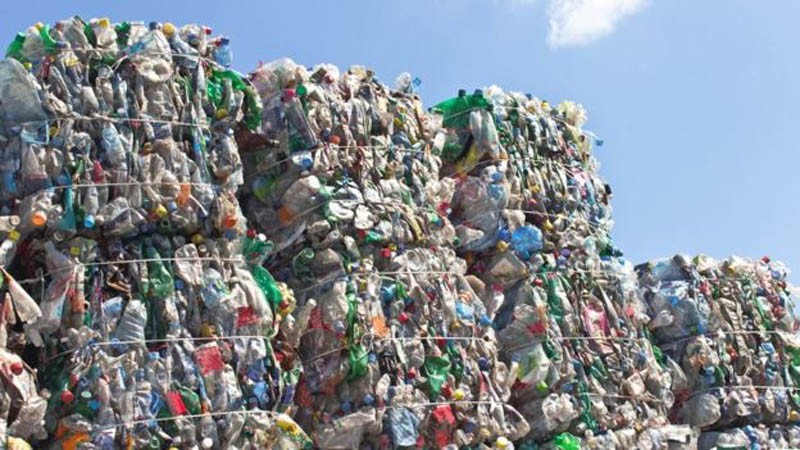A STUDY ON REUSE OF SOLID WASTE
A STUDY ON REUSE – Abstract of the study. All over the world the rate of solid waste generation of solid waste is increased day by day. In Bangladesh the rate is also at alarming. The solid waste generation is directly related with living standard, economy of the society and people attitude. It is not possible to stop the solid waste generation. Hence many techniques are developed to minimize the solid waste generation and to manage the unwanted problem. Reuse is one of them. Reuse of solid waste is one of most important part of solid waste management. It more suitable for a developing country like Bangladesh. Reuse help to save time, money power and resources, exchange them without taking useful products and reprocessing. Historically, A STUDY ON REUSE financial motivation was one of the main drivers of full reuse.

2. Objectives.
a. To study the solid waste generation in developed countries.
b. To study the solid waste generation in Asian countries& Bangladesh.
c. To compare the reuse of solid waste in Bangladesh & other developed countries.
d. To discuss about the steps that may be taken to overcome the limitations.
More News >> ভয়াবহ ৬০টি কবীরা গুনাহ ।। প্রচলিত কিছু কবীরা গুনাহ
3. A STUDY ON REUSE Scope of the study.
Reuse means subsequent use of a material in the same form after the end of its use. Reuse does two jobs simultaneously as it reduces wastes and longer the life cycle of resources. Reuse is the best solution to control solid waste problem in developing countries like Bangladesh. Not only reuse can also play a vital role in economy of a country by creating job opportunity for a large amount of people. To compare the reuse of solid waste in Bangladesh & other developed countries.
4. Introduction.
a. Waste are all the materials arising from human and animal activities that are discard as useless or unwanted. Any substance or object the user discards, intends to discard or is required to discard is waste. Once a substance/object has become waste, it will remain waste until it has been fully recovered and no longer poses a potential threat to the environment or to human health.
b. Generally when the wastes are in solid form it is termed as solid waste. Also it can be said that solid waste are solid or semisolid, non-soluble material (including gases and liquids in containers) such as agricultural refuse, demolition waste, industrial waste, mining residues, municipal garbage and sewage sludge. Waste may be of different types. It may be shortly classified as decomposable and non- decomposable or may be classified on the source of generation.
c. Now a Day, waste is a global problem. Generation of waste has been started from the very beginning of mankind and it is also increasing with the advancement of mankind. Though some wastes are decomposed and stabilized, most of them are not decomposed and they become hazardous for the environment. With the advancement of time, the quantity of waste is increasing at an alarming rate. Hence it has become a problem for Mankind. So to stabilize these phenomena, the process of Reuse has been discovered.
 বিস্তারিত জানতে Google News অনুসরণ করুন
বিস্তারিত জানতে Google News অনুসরণ করুন
d. With the increase of population, use of different types of machines and technology has been increasing. Many Factories and Industries have been established to meet the demand of rapidly increasing people. Use of different type of synthetic materials has been increased. Waste generated from most of these materials do not decompose and may become hazardous if not properly managed. A STUDY ON REUSE
e. To overcome this unwanted problem, recycling and reuse is needed all over the world. Recycling means reprocessing of wastes to recover an original raw material and producing the same or different products from it. Reuse means subsequent use of a material in the same form after the end of its use. Sometime recycling is expensive. So reuse is the best solution to control solid waste problem. Not only reuse can also play a vital role in economy of a country by creating job opportunity for a large amount of people.

f. In Bangladesh huge amount of waste is generated daily. Present condition of the solid waste management should be studied to find out which steps are more suitable to manage this huge amount of solid waste. Reuse may be a great solution for solid waste problem. Many recycling and reuse shops are situated in whole over the country. Then pointing out the limitations of existing system of reuse in Khulna, the present condition can be improved.
5. Waste generation in developed countries.
Developed country produce more solid waste than other country.
6. Waste production in Asia.
As Asia’s urbanization and economic development increase, the impact of the solid waste of society is not clear. Today, In urban areas of Asia, about 760,000 tons of municipalities produce solid waste (MSW) every day, or produce about 27 million M3. In the year 2025, this number is 1.8 million tons per day or 5.2 million per day. This estimate is conservative; The actual value is probably twice that amount. In 2007 and 2010 the rate of solid waste generation of Bangladesh is less than India but in 2030 it is increase more than India and the increasing rate is 46.26 % which is 29.33 % for India for 23 years.
7. Solid waste generation rate in Bangladesh.
a. Bangladesh is a developing country in South Asia. Total area of Bangladesh is 147, 570 sq km (55,813 sqm). Its population is 156 million (July 2009 CIA est.) Bangladesh has more solid waste production rates.

Table: Current Situation of Wastes in Bangladesh:
b. Everyday huge amount of solid waste is generated in Bangladesh. The solid waste generation rate is very close in each major city of Bangladesh. Below Table show the generation of Municipal solid waste in six major cities of Bangladesh as recorded in the year of 2005 (Alamgir et al. 2005) Table: MSW generation rate of different city of Bangladesh.
Table: MSW generation rate of different city of Bangladesh.
| MSW Generation | Dhaka | Chittagong | Khulna | Rajshahi | Barisal | Sylhet |
| Population (Millions) | 11 | 3.65 | 1.5 | 0.45 | 0.40 | 0.50 |
| MSW generation (tons/day) | 5340 | 1315 | 520 | 170 | 130 | 215 |
| MSW generation rate (kg/capita/day) | 0.485 | 0.360 | 0.346 | 0.378 | 0.325 | 0.430 |
c. The Table reveal that Municipal solid waste is generated at a rate of 0.325 to 0.485 kg/cap/day. In total these six city generate 7690 tons of municipal solid waste per day and the generation rate is 0.439 (kg/capita/day). These wastes are not generated from only one source. These solid waste are generated from different sources. Bangladesh table 2.5 shows the different sources of municipal solid waste in the six major cities.
Different sources in totals generation of MSW in the six major cities of Bangladesh.

Different sources in total generation of MSW in the six major cities of Bangladesh
8. Solid Waste Management Process.
To overcome this unwanted problem, reduce, recycling and reuse is needed all over the world which is known as 3R.

9. Conclusion & Recommendation.
a. There is sufficient number of reuse waste shops in the Bangladesh. This sector is completely private. No governmental company is found in this sector. A STUDY ON REUSE
b. Everyday a large amount of solid waste is reused in Bangladesh. There are many problem in the reuse sector of solid waste in Bangladesh. Many reuse shops are closed due to financial problem.
c. The reuse sector plays an important role in solid waste but still it remains within the boundary of private sector as no financial support from the government has been provided. To make the existing reuse system more effective financial support from government is necessary.
d. There is no protecting measure is taken during working with hazardous waste for the workers. No protection is taken by workers during dangerous work. So the workers should be made aware of the health risks of hazardous waste handling. e. The salary of workers is very low. The salary should be fixed as a reasonable for both workers and owner.
 আমি বাংলার কথা বলি
আমি বাংলার কথা বলি
